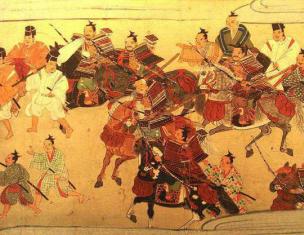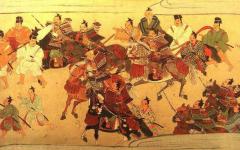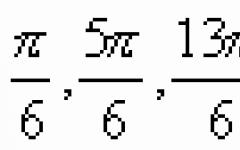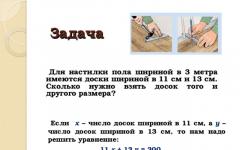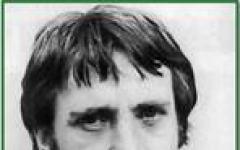Preface to the 1st edition of the Russian spelling dictionary edited by V. V. Lopatin
Preface to the 2nd edition
Structure of the dictionary and design of vocabulary units
List of abbreviations used in the dictionary
Appendix I. Basic common graphic abbreviations
Appendix II. List of personal names
Preface to the 1st edition
SCOPE OF THE DICTIONARY AND GENERAL CHARACTERISTICS OF THE DICTIONARY
The new "Russian Spelling Dictionary", being a normative reference book for a wide range of users, reflects the vocabulary of the Russian literary language of the mid-90s of the 20th century. Along with active, commonly used vocabulary, the dictionary includes colloquial, dialect (regional), slang, obsolete words, historicisms - to the extent that these categories of words are reflected in fiction, in newspaper, journalistic and colloquial speech. Special terminology of various fields of scientific knowledge and practical activity occupies a significant place in the dictionary.
The dictionary was prepared in the sector of spelling and spelling of the Institute of Russian Language. V. V. Vinogradov RAS. E. V. Beshenkova, S. N. Borunova, L. P. Kalakutskaya, N. V. Mamina, I. V. Nechaeva took part in the work on the dictionary at different stages.
The dictionary gives the correct spellings of words and their forms, as well as some types of verbal compounds, one way or another correlating with the words. Such compounds include, for example, separately and hyphenated combinations of words that are similar in structure and meaning to words written together ( bread and salt,launch vehicle,read-re-read,vital), prepositional-case combinations similar to adverbs ( in principle,retail,on the go,out of habit), compound names in which one word (or more) is written with a capital letter ( State Duma,Black Sea).
Compared to the "Spelling Dictionary of the Russian Language", published in 1956 - 1998. (editions 1 - 33), the vocabulary of this dictionary has been significantly expanded (from 100 to 160 thousand units). Particular attention is paid to the vocabulary of those conceptual areas that have been updated in recent years: first of all, to church and religious vocabulary, terminology of the market, business, banking, programming, computer technology, etc. The range of common noun vocabulary has been replenished with a variety of new words and expressions characteristic for modern newspaper, journalistic, colloquial speech and vernacular. The representation of derived words has been significantly increased. The range of separately written (non-single word) units included in the dictionary has been expanded, and, first of all, the functional equivalents of a word.
The fundamental difference between the new dictionary and the “Spelling Dictionary of the Russian Language” is the inclusion of words written with a capital letter (the authors of the previous dictionary did not aim to reflect such spellings).
The following categories of capitalized words and their combinations are presented as independent vocabulary units in the “Russian Spelling Dictionary”:
1) proper names (personal, literary, mythological, geographical), also used in the common sense, for example: Hamlet,Gargantua,Plyushkin,Mitrofanushka,Munchausen,Apollo,Nemesis,Cassandra,Themis,Rothschild,Juvenal,Mecca,Vendée,Hiroshima,Chernobyl,Cheryomushki;
2) names of sacred concepts of religion, for example: Lord,Mother of God,Bible,Gospel,Koran,Scripture,Christmas,Candlemas,Exaltation,God the Father,Holy Sacrament,Mother of God,Resurrection of Christ,Holy Sepulcher;
3) names of historical eras, for example: Reformation,Risorgimento,Quattrocento,Proto-Renaissance;
4) geographical and other names formed according to word-formation models of common nouns, for example: Moscow region,Volga region,Transcaucasia,Orenburg region,Orlovshchina,Vologda region,Podkamennaya Tunguska,Vodovzvodnaya Tower, (Andrey)First-Called, (Simeon)God-receiver;
5) proper names (personal, mythological, geographical), appearing as part of stable combinations - such as, for example: Archimedes' law,Boyle-Mariotte law,binomial theorem,Morse code,Geiger counter,Kalashnikov assault rifle,lynching,Hippocratic oath,Botkin's disease,two-faced Janus,Thomas is unfaithful;between Scylla and Charybdis,cross the Rubicon,sink into oblivion;Where didn’t Makar drive his calves?;Ivans,not remembering kinship;GMT,Celsius,on the Richter scale(the corresponding combinations can be found in the dictionary corpus for words written in these combinations with a capital letter);
6) compound names (geographical, astronomical, names of historical persons, mythological and literary characters, historical eras and events, calendar periods and holidays, organizations and institutions, states and state associations), including common nouns (including words, used not in their own direct meaning), for example: Moscow River,Mediterranean Sea,Sergiev Posad,Tsarskoe Selo,Far East,Great Wall of China,Land of the Rising Sun,Eternal City,Golden Horde,Poklonnaya Gora,Milky Way,Peter the Great,Ivan Tsarevich,Zmey Gorynych,Middle Ages,First World War,St. Bartholomew's Night,Battle of Kulikovo,last supper,Holy Week,Lent,Elijah's day,Trinity Day,New Year,may Day,Paris Commune,United Nations,Russian Federation,Commonwealth of Independent States,Federal Assembly,State Duma.
Compound names given in the dictionary with repeating first components of the type State,International,World,All-Russian,Moscow,Central,House,Day,Museum, and also North,South- etc. should be considered as examples indicating the nature of writing large groups of similar names. Compound names and other stable combinations that do not contain words written with a capital letter (for example, railway,black magic,topic of the day), are not listed in the dictionary if the words included in them are present in their alphabetical places as separate vocabulary units, and writing such combinations separately and with lowercase letters does not pose a problem.
The names of various thematic groups (including those listed above), written with both capital and lowercase letters, are presented in the dictionary in both spelling versions with the corresponding necessary explanations. These are, for example, articles: Aquarius, -I ( water drain) And Aquarius, -I ( constellation and zodiac sign;about that,who was born under this sign); education, -I ( dissemination of knowledge,education) And Education, -I ( ist.era,ideological trend); Dulcine"i, -And ( lit. character) And dulcine"i, -And ( beloved woman,iron.); see also North,East,Sun,Moon,Earth,Virgo,Sagittarius,God,Creator,Deity,Divine,God,God,Baptism,Trinity,Calvary,Sodom and Gomorrah,Olympus,Amur,Eros,Hercules,pillars of Hercules,Kremlin,Chernozem region,October,February,Middle Ages,Renaissance,Kamchatka,Khokhloma,Palekh,Father Frost,Don Quixote,Robinson,Harlequin,Bug etc.
Of the abbreviations written in capital letters, only those that have a common meaning are given as independent vocabulary units, for example: hydroelectric power station,computer,AIDS,Chipboard,Ultrasound,VTEK; the same applies to compound words and compound names with the following abbreviated components: micro hydroelectric power station,minicomputer,MHD generator,UHF therapy,VHF transmitter,DNA-containing etc.
Words derived from proper names are widely represented in the dictionary - for example, adjectives from geographical and astronomical names ( Balkhash,Venezuelan,Volokolamsk,Karaganda,Penza,Oka,Ugandan,Jupiterian), from personal names and surnames ( Petrovsky,Shakespearean,Walterscottian,Cyril and Methodius,Verdievsky,Mozartian,Mozartian,Victorian; words like Homers,Marxov), from the names of organizations, institutions, societies, etc., including abbreviations ( UN,Gulag,Tassovsky,NKVD,Uralmashevsky,opoyazovsky,Izvestian,Dynamo), names of residents of settlements and countries ( Rostovites,Ekaterinburg residents,Tula,Los Angelesites,Bolivians), members of organizations, groups, societies, followers of socio-political, philosophical and other movements ( KGB officer,KGB officer,tsekovets,Moscow Art Theater member,Spartakist,Gaullist,Steinerian) and other categories of formations from proper names (for example, episodic,smerdyakovism,Lermontov expert,color expert).
For all adjectives derived from proper names, as well as for some nouns, the generating word - the proper name - is indicated in brackets, for example: ri"zhsky(from Ri " ha), tseesko"vskiy(from CSKA), mirisku" wilted(from"Mi " p claim " properties"). Thus, many categories of proper names (geographical, personal, etc.), although not represented in the main body of the dictionary as independent units, are present in it with derived words.
Brand names of vehicles type Boeing,Lada,Mercedes,Lincoln are given in the dictionary in their everyday use - without quotation marks and, as a rule, with a lowercase letter.
The following are highlighted as appendices to the dictionary: 1) a list of personal names, 2) a list of graphic abbreviations used in modern written practice.
Preface to the 2nd edition
Institute of Russian Language named after. V.V. Vinogradov of the Russian Academy of Sciences prepared the second, corrected and expanded, edition of the “Russian Spelling Dictionary”, the volume of which (about 180 thousand words) significantly exceeds all previous editions of spelling dictionaries. The dictionary is a normative reference book that reflects as completely as possible the vocabulary of the Russian language at the beginning of the third millennium and regulates its spelling.
Compared to the previous edition of 1999, the dictionary has increased in volume by approximately 20 thousand words. The additional material primarily presents new vocabulary that has become established in word usage in recent years. These are, for example, rows of words with new first parts internet, web, PR, online etc. The rows of words with the first parts have been significantly expanded business, video..., media..., mini, narco..., rock, pop, retro..., post..., special..., super... etc. Words such as water park, alternative, banner, brand, macho, sommelier, trend, tutor, fitness, hi-tech, chat, chart etc., and derivatives from them. The dictionary has been replenished with a number of terms related to business and market, politics, medicine, sports and other areas of life that were not previously included in general dictionaries. Since the use of such terms has intensified, their normative orthographic appearance should be recorded not only in special terminological dictionaries.
In addition to these groups of words, the dictionary includes old words found mainly in fiction, including a number of obsolete and regional words (in particular, reflected in the published volumes of the 2nd edition of the academic “Dictionary of Modern Russian Literary Language”) and derivative words different word-formation types.
The number of hyphenated and separately written compound formations presented in the dictionary has been significantly increased - adjectives, nouns, including those that include a dash (for example, research fellow - consultant, educational complex - school, judge - battle director), adverbs, compound conjunctions. There are much more dictionary entries devoted to the repeating first components of complex and compound words - such as cyber..., border..., farm..., fin..., evacco..., eco..., exo..., endo... and others.
Where necessary, in accordance with the principles formulated in the first edition of the dictionary, the dictionary development of similar words has been streamlined and unified (presenting certain necessary forms, adding explanations - especially when homonyms and paronyms collide), the range of words that can be written not only with lowercase, but also with capital letters. Technical errors noted in the first edition have been corrected.
The second edition of the dictionary is based on the current “Rules of Russian Spelling and Punctuation”, approved in 1956, with the exception of the outdated recommendations of these rules, which diverge from modern writing practice (primarily this applies to the use of capital letters).
The results of the scientific discussion that followed the release of the first edition of the “Russian Spelling Dictionary” made it possible to significantly clarify the changes in the spelling of some words proposed in this edition, abandoning recommendations that were ahead of writing practice. Thus, it was considered appropriate to return to hyphenated spellings of words like Walter Scott, and according to their example in this edition, new words of the same type (which first appeared in the first edition) are normalized Jules Vernovsky, Mark Twain etc. In the same way, returning to the separate writing of combinations like a fool is a fool required similar spelling in combinations bog by bob, man by man, bungler bungler.
In accordance with tradition, writing musical terms like C major, A minor, D flat major, D sharp minor are given in their usual form, i.e. with separate writing of components major And minor, although in accordance with the same tradition (devoid, it should be noted, of linguistic logic) of writing components -major And -minor the corresponding adjectives remain hyphenated.
Some few innovations of the first edition are preserved in the second - in those cases when the spellings offered in dictionaries before 1999 turn out to be inconsistent with the prevailing spelling practice and the principles of orthographic normalization. For example, the legal term traceology written with both one and two With. Both spellings are possible. Writing with one With etymologically correct (from French tras), and the spelling with two ss combines this word with other words going back to the same root (cf. track). In old spelling dictionaries the spelling was given with two ss. According to our data, in modern writing practice, writing with one With prevails, and therefore in this case it is advisable to give a more common and etymologically correct spelling with one With.
Let's give another example. Words countersignature And countersigned- financial and legal terms that are written differently in different sources. The dictionary recommends spelling with one s, since these words are not associated with banknote, allocate, and with words countersignature, countersign(from Latin signare ‘to sign’).
Based on current rules and reflecting modern writing practice, the “Russian Spelling Dictionary” gives recommendations on the uniform, unified spelling of new words - this is one of its most important tasks. For words that are not yet fully established orthographically, such recommendations are based on orthographic precedent. For example, compound words with the first part media... (media holding, media support etc.) it is proposed to write together according to the model of other series of complex words with the first parts on a vowel: air..., auto..., hydro..., video..., meteo..., radio... and many others; in words with prefixes fast… And super… write a hard sign ( post-nuclear, post-Yeltsin, superyacht), as in words with all other prefixes of this type. The word realtor is suggested to be written with the letter e, following the example of words like diet, sharp, patient, applicant(everywhere after And- letter e); word offshore- with one f on the model of such anglicisms with the same initial part as office, offset, offside; the word karate - with a letter e at the end, as in words muffler, puree, highway, summary, variety show etc.
The authors will be grateful to everyone who sends their comments and suggestions regarding the second edition of the dictionary. Our address: 119019, Moscow, Volkhonka, 18/2, Institute of Russian Language. V. V. Vinogradov RAS.
To check an unstressed vowel in the root, you need to choose a related word or form of the same word so that this vowel is stressed.
Spelling alternating vowels in word roots
If the root is followed by a suffix -A-, in roots with alternating e(And) is written And, and in the roots -false-(-lag-) And -braid-(-kas-) is written A.
At the root mountains(gar- O. Exceptions: fumes, soot, scorch(special and dialect words).
In the roots clone-(clan-), creative(creature-) in unstressed position is written O.
At the root zor- in unstressed position it is written A. Exception: dawn.
At the root -grew-(-growing-) before st And sch is written A. Exceptions: industry, sprout, outgrowth, moneylender, Rostov, Rostislav, Rostokino.
At the root -skoch-(-jump-) before h is written O, before k is written A. Exceptions: jump, jump.
Spelling depends on meaning O And A in the roots -mok-(-poppy-) And -even-(-equal-):
-mok-- in the meaning of “to pass liquid”;
-poppy-- meaning “to lower into liquid”;
-even-- in the meaning of “smooth”, “even”;
-equal-- in the meaning of “same, identical”
At the root -float- always written A: float, buoyancy. Exceptions: swimmer, swimmer, quicksand.
Spelling unpronounceable consonants in word roots
To check the spelling of roots with unpronounceable consonants ( stn, zdn, lnts, rdc) you need to choose a related word so that this consonant comes before the vowel.
Spelling O(e) after sibilants in the roots of nouns and adjectives
At the root of the word after the hissing words it is written e, if in related words it alternates with e; if it is formed from a verb or passive past participle.
O and Yo in suffixes and endings of nouns and adjectives
In suffixes and endings after sibilants it is written under stress O.
Spelling I-Y after C
At the root after ts is written And. Exceptions: gypsy, tiptoe, chick, chick.
In suffixes and endings after ts is written s(except for words on -tion).
Spelling O(E) after C
In suffixes and endings under stress it is written O, without accent – e.
Soft sign in verb forms
b written in the indefinite form of verbs: wash your face, in the form of the imperative mood: put, in the form of 2 l. units: wash your face.
Spelling b
Dividing ъ written before the root e, e, yu, i after consonant prefixes and in foreign words after the following consonant prefixes: ab, hell, diz, in, inter, con, counter, ob, sub, trans, and also after the initial pan.
Spelling Y-I at the junction of prefix and root
After a prefix ending in a hard consonant, at the root of the word instead And write s(as we hear, so we write). In a word charge is written And according to pronunciation.
Note. This rule does not apply to compound words, for example: pedagogical institute, sports equipment.
After consoles inter-, super- saved And, since it is not written after sibilants and back-linguals s.
Saved And also after foreign language prefixes and particles ( counter-, dis-, trans-, pan-, sub-, post-, super-).
Spelling of prefixes
Spelling of prefixes pre- and pre-
Prefix at- used in the following meanings:
– “approach, accession, incompleteness of action, proximity”: sew, open, school.
- bringing the action to completion: tap.
– performing an action in someone’s interests: hide.
Prefix pre- used in the following meanings:
– “very” (highest degree of manifestation): most unpleasant.
– “re-”: block.
Spelling of prefixes raz- (ras-) and other prefixes (without-, voz- (vz-), iz-, niz-, through- (through-) on z-s
In consoles on s-s s is written before the voiced one, and With- before a voiceless consonant.
Spelling of the root pol- as part of a compound word
Floor- written with a hyphen before root vowels, l and capital letters. In other cases floor- written together.
Prefix semi- written together.
Spelling difficult words
Difficult words- these are words that are formed by combining two stems in one word.
Spelling compound words with connecting vowels O and E
O, if the first stem ends in a hard consonant.
Roots in compound words are connected using a connecting vowel e, if the first stem ends in a soft consonant, sibilants and ts.
Continuous and hyphenated spelling of compound nouns
They are written with a hyphen -
– names of cardinal directions: northeast, southwest;
– names of complex mechanisms and units of measurement: diesel engine, bed. Exception - workday;
– names of some plants: Ivan-tea;
– with initial foreign language elements vice-, label-, headquarters-, ex-.
– formed from two words of the same thematic group (words-synonyms, antonyms that clarify each other): misfortune(synonyms), raincoat (cloak and he is tent).
Spelling complex words together -
with a verb to And in the first part: daredevil. Exception - tumbleweed;
with a genitive numeral in the first part of the word: fivefold. But: centipede(because not in the direct sense of the count). Exceptions: 90 (ninety-kilogram), 100 (hundred-meter), 1000 (thousand-year);
names of city residents: Almaty resident;
compound abbreviations: duffel bag.
Continuous and hyphenated spelling of adjectives
Adjectives are written with a hyphen:
formed from coordinating phrases: Russian-English dictionary(dictionary with Russian and English words);
expressing quality with an additional touch: light green;
formed from hyphenated nouns: New York;
The remaining complex adjectives are written together.
Spelling suffixes of nouns and adjectives
Noun suffixes
Suffix -chick written in nouns with the meaning of person after root consonants d, t, h, s, g, if there are no other consonants before them: defector; alimony worker.
Before the suffix -chick final consonant stems k, ts, h are replaced T: distribution - distributor.
Before the suffix -schik a soft sign is written only after l: roofer.
Suffix -ek is written if when changing a word e drops out: padlock - padlock, But: key - key.
Suffix (unstressed) -ets- written in m.r. nouns: well, -its-- in nouns: gorgeous.
Spelling of participle suffixes
From the stem of the infinitive to -et, -it, -ti, -ch past participles are formed with the suffix -enn-.
From the stem of the infinitive to -at, -at Passive past participles are formed with the suffix -nn-, while verbal suffixes -A- And -I- are preserved in the sacrament.
(A literate person. Textbook. L.D. Bednarskaya, L.A. Konstantinova, E.P. Shchennikova)
Competent written speech is an integral part of the life of a modern intellectually developed person. When conducting business correspondence, errors in spelling words are strictly unacceptable. This may indicate that the partners' personnel are poorly educated. Or illiterate personal messages when communicating on social networks, mobile instant messengers, or SMS correspondence can alienate people who have barely met.
If you have difficulty spelling words, it is better to consult a spelling dictionary.
Spelling dictionary meaning
Spelling dictionary- a dictionary in which words are placed in alphabetical order. It is difficult to find test words for these words to make sure that the required spelling is correct. These words need to be remembered. The most important function of this type of dictionary is to help you correctly write or pronounce a word whose spelling or pronunciation is difficult.
Features of dictionaries
In spelling dictionaries, all words are stressed. This helps improve the quality of not only written but also oral speech.
Distinctive features of the spelling dictionary:
if words with the same meaning can be written differently, then these words follow in one line through the conjunction “and”. For example, "tunnel" and "tunnel".
when writing some vocabulary units separately or together, in case of differences, they are placed on two lines (“slightly wounded” and “slightly wounded”, adj.)
verbs with postfixes “-sya” (“-сь”) are indicated in one line. For example, “run (sya), -ay, -et (sya).” This is also typical when writing participles: “he who sows.”
Dictionary categories
There are a huge number of dictionaries. For ease of use, they are divided into the following groups.
The main types of spelling dictionaries are:
- School- dictionaries used by school students. They usually have a convenient publication format and come in pocket size. They are the most common and suitable for additional learning of the Russian language.
- Industry- have a fairly narrow focus. Such dictionaries indicate words, their spelling, and possible use in certain professional circles. For example, the “Musical Encyclopedic Dictionary” contains basic terminology and the most used vocabulary among professional musicians and music lovers.
- Dictionaries and reference books- serve for use in proofreading and editing work on texts.
- General- used when certain problems arise in spelling words. For example, hyphen, separate or continuous spelling of words.
Classic dictionaries
Among the huge mass of books for competent writing, dictionaries occupy one of the main places. Among them, the works of great Russian linguists should be noted; their results are often used in the 21st century.
Most popular - spelling dictionary created under the supervision of D.N. Ushakova and S.E. Kryuchkova.
The famous Russian linguist D. N. Ushakov in 1911 created the work “Russian Spelling”. It was he who was an active participant in the reform of the rules of Russian spelling in 1918. Then the letter Ѣ (yat) and some others ceased to exist, the hard sign “Ъ” began to be used only for separation, in the genitive and accusative cases of adjectives and participles the ending -ago was replaced by -ego (best → best) and a number of others. All this prompted D.N. Ushakov to create a spelling dictionary.
Kryuchkov Sergei Efimovich - famous Soviet linguist. He is known for creating a modern school grammar of the Russian language. When combining works D.N. Ushakova and S.E. Kryuchkova it worked out "Spelling dictionary of the Russian language", which has been actively used for more than half a century. It was published about sixty times.
Famous “Russian spelling dictionary: about 180,000 words” under the leadership of O. E. Ivanova, V. V. Lopatin. Vladimir Vladimirovich Lopatin is a famous Russian linguist. The initial work of V.V. Lopatin was published in the middle of the twentieth century, and since then it has been constantly republished and expanded. From the moment of its first release to today, its vocabulary has grown by 80,000 units. The vocabulary is constantly updated with new modern words on topics of business, programming, banking and others. In addition, in the dictionary V.V. Lopatin introduced a number of categories that must be written with a capital letter: the names of the sacred concepts of faith: the Bible, the Koran; and names of historical eras or events: Reformation, Risorgimento and several others.
It is impossible not to mention the well-deserved and often used works of D.E. Rosenthal. The popular Russian linguist analyzed and clearly presented both grammatical rules and punctuation, stylistic and spelling principles of the standard Russian language. Under his leadership, in the 80s of the twentieth century, dictionaries-reference books for press workers, dictionary-reference books for the correct use of capital or lowercase letters, and a number of other textbooks and collections of exercises for in-depth study of the language were published.
A spelling dictionary is an excellent assistant for competent written or oral communication with others. This is an acquisition that will be useful not only during school, but also during college, during business correspondence at work or when exchanging personal messages.
A language dictionary that gives the standard spelling of words. [GOST 7.60 2003] Subjects of the publication, main types and elements of EN spelling dictionary DE orthographisches Wörterbuch ... Technical Translator's Guide
spelling dictionary- spelling dictionary: A language dictionary that gives the standard spelling of words. Source: GOST 7.60 2003: System of standards for information, library and publishing ... Dictionary-reference book of terms of normative and technical documentation
spelling dictionary- Rus: spelling dictionary Deu: orthographises Wörterbuch Eng: spelling dictionary A language dictionary that gives the standard spelling of words. GOST 7.60 ... Dictionary of Information, Librarianship and Publishing
spelling dictionary- a dictionary containing words in their standard literary pronunciation and spelling... Explanatory translation dictionary
spelling dictionary- see linguistic dictionary...
linguistic dictionary- A dictionary that provides an explanation of the meaning and use of words (as opposed to an encyclopedic dictionary, which provides information about relevant realities of objects, phenomena, events). Dialect (regional) dictionary. Dictionary containing... ... Dictionary of linguistic terms
ORTHOGRAPHIC- SPELLING, spelling, spelling. adj. to spelling. Spelling rules. Spelling dictionary. Ushakov's explanatory dictionary. D.N. Ushakov. 1935 1940 ... Ushakov's Explanatory Dictionary
Ushakov's Dictionary- “Explanatory Dictionary of the Russian Language”, edited by Dmitry Nikolaevich Ushakov, is one of the main explanatory dictionaries of the Russian language. Under the editorship and with the author’s participation of D.N. Ushakov, in 1935-1940, 4 volumes of “Explanatory ... ... Wikipedia” were published
Dictionary- Dictionary 1) vocabulary, vocabulary of a language, dialect, any social group, individual writer, etc. 2) A reference book that contains words (or morphemes, phrases, idioms, etc.) arranged in a certain order … … Linguistic encyclopedic dictionary
Dictionary- a collection of words (sometimes also morphemes or phrases) arranged in a certain order, used as a reference book that explains the meaning of the units described, gives various information about them or their translation into another... ... Great Soviet Encyclopedia
Books
- Spelling dictionary, Ushakov Dmitry Nikolaevich, Kryuchkov Sergey Efimovich. “Spelling Dictionary” by D. N. Ushakov and S. E. Kryuchkov is known to everyone who studied at school. And this is no coincidence: the dictionary has been used for more than 70 years. Because it does not become outdated, reflecting active changes... Buy for 353 rubles
- Spelling dictionary, Gaibaryan O. (compiled). The spelling dictionary is an indispensable reference book for students and applicants. In it you can find all the answers to your questions regarding the spelling of words in the Russian language. This…


